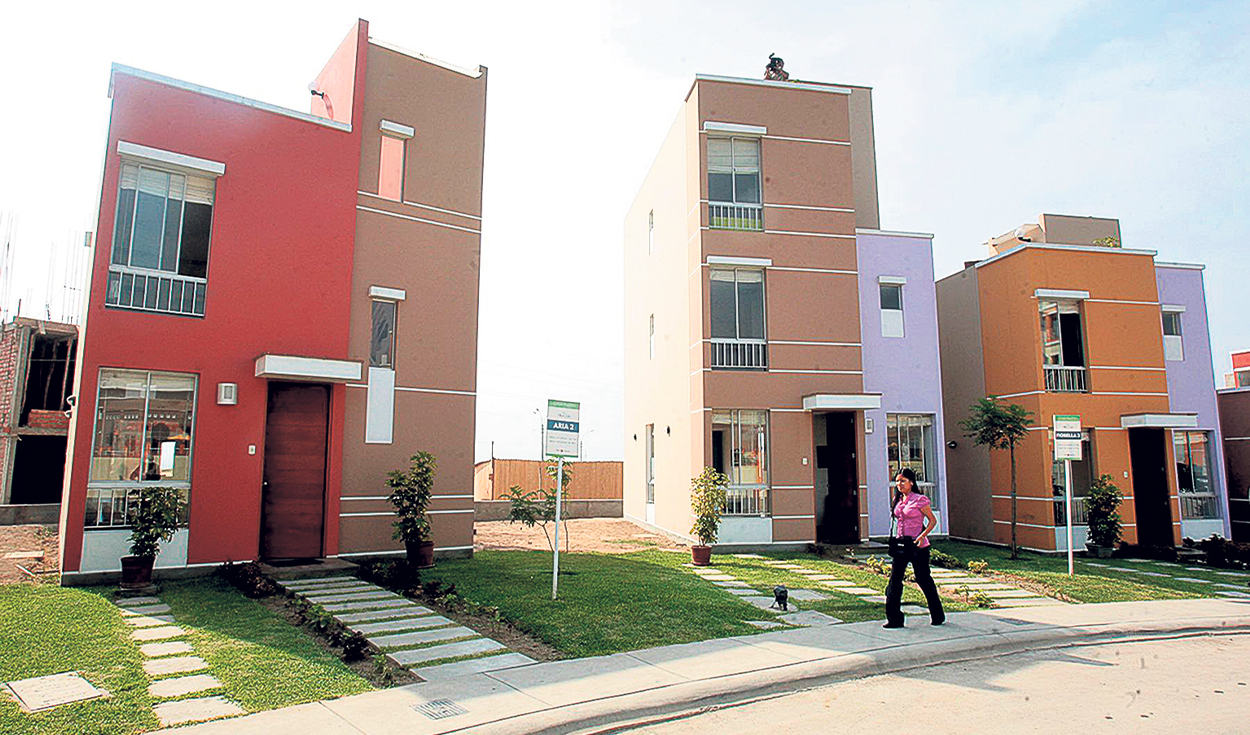
He Mivivienda Fund plans to disburse S/2,500 million in loans from the Nuevo Crédito Mivivienda (NCMV) this year, said Ramón Huapaya, president of the board of directors of the company attached to the Ministry of Housing, Construction and Sanitation (MVCS). The new forecast is more than 11% higher than the amount placed in 2022, when an accumulated investment of S/2,246 million was registered.
“Last year we have broken a record in Mivivienda loans; (we delivered) 13,507 loans. This has been a spectacular work and we want to continue doing it,” said the official at the Social Interest Housing Development forum in Peru. He added that, to achieve this year’s goal, his office is working together with the financial entities and unions involved.
housing deficit
However, the initiatives of the Government through the MVCS continue to be insufficient and the housing deficit borders 70%. In Peru, 142,000 new homes are required per year; however, only 43,000 units are produced, according to José Antonio Cerrón, head of the General Directorate for Housing and Urban Planning Policies and Regulation. “In other words, almost 99,000 families cannot find formal housing,” he comments.
This lack of supply causes around 85,000 families to resort to informal housing and around 14,000 are left without a home annually.
“The largest production of housing in our country today is informal and inadequate housing”emphasizes the official.
For his part, Ivan Portocarrero, head of Sector Analysis at Apoyo Consultoría, points out that one of the main problems preventing the reduction of the housing deficit is that the budgets allocated for the Good Payer Bonus (BBP) and the Family Housing Bonus (BFH) they are not very predictable, which ends up affecting families who want to access decent housing.
Thus, according Portocarrero, to reduce the housing deficit by 40% until 2026, an annual budget of S/1,680 million would be needed, which means an additional budget of S/900 million to that granted each year on average. Although the addition of resources, due to the amount, may not be feasible for the Ministry of Economy and Finance (MEF), the expert indicates that this problem could be solved by reallocating resources.
“On average, the ministries, in terms of public investment, do not execute S/4.4 billion per year”which could be allocated to the programs of the Ministry of Housing, says Portocarrero.
Doing the same dynamic, he suggests that this year the budget allocated to bonds myhome should increase by around S/276 million.
On the other hand, the representative of Apoyo emphasized the impact that the financing of social housing has on economic growth. “Social housing grew 40% (from last year) and was one of the dynamic sectors of 2022,” he said. In addition, he stressed that investment in this subsector “weighs around 7% of private investment.”
They delivered more than 3,000 property titles in Piura
The head of the MVCS, Hania Perez de Cuellarhanded over 3,700 property titles to families and public institutions in Piura, which were formalized by the Informal Property Formalization Agency (Cofopri).
Of the total titles, 3,673 correspond to homes and 27 to urban equipment (health posts, educational centers, etc.).
will benefit 13,690 inhabitants of Ayabaca, Huancabamba, Morropón, Paita, Piura, Sechura, Sullana and Talara.
“More than property titles, they are a title of hope, because from now on, (with this document) they will have legal security over their homes and also the possibility of obtaining a loan to improve their homes,” he said.
Source: Larepublica
Alia is a professional author and journalist, working at 247 news agency. She writes on various topics from economy news to general interest pieces, providing readers with relevant and informative content. With years of experience, she brings a unique perspective and in-depth analysis to her work.











